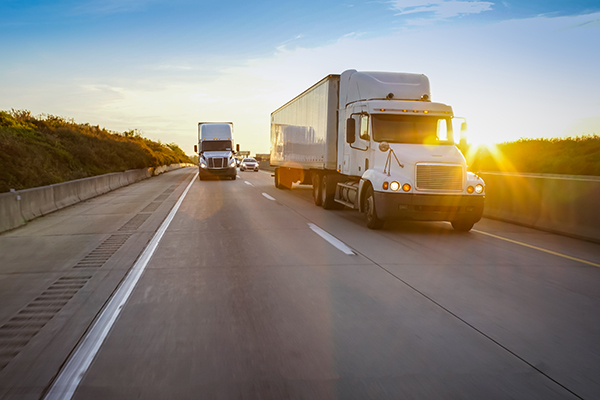Amazon significantly ups order for delivery vehicles through deal with Mercedes
When e-commerce powerhouse Amazon announced in late June it was rolling out its Delivery Service Program, in an effort to increase its package delivery and logistics service capabilities that it said will enable entrepreneurs to set up their own businesses to deliver Amazon packages, it drew a lot of attention, as it typically does, and interest.
When e-commerce powerhouse Amazon announced in late June it was rolling out its Delivery Service Program, in an effort to increase its package delivery and logistics service capabilities that it said will enable entrepreneurs to set up their own businesses to deliver Amazon packages, it drew a lot of attention, as it typically does, and interest.
That interest was renewed this week, with the company announcing it has ordered 20,000 Mercedes-Benz Sprinter vans to be deployed for the new package delivery offering.
A report in the Seattle Times said this order is more than four times higher than what Amazon initially anticipated this summer, adding that these vehicles will be used for last-mile delivery services, which Amazon often has UPS, FedEx, the United States Postal Service, and contractors do for them.
But the report explained that Amazon’s initial expectation of ordering 4,500 vans was pushed higher as it received 10,000 applicants for the delivery program and resulted in a higher order number.
As previously reported in LM, an owner of an Amazon package delivery franchise can earn up to $300,00 in annual profit, with startup costs starting at $10,000, through operating a fleet up to 40 delivery vehicles. What’s more, it added that owners will be able to leverage delivery volume from Amazon, access to the company’s sophisticated delivery technology, hands-on training, and discounts on a suite of assets and services, including vehicle leases and comprehensive insurance. And they will also have access to various “exclusively negotiated discounts” on resources for a delivery business, including branded uniforms, fuel, and comprehensive insurance coverage, among other options.
Looking to the future, Amazon explained it wants to bring in hundreds of in-house delivery partners that would, in turn, hire tens of thousands of U.S.-based delivery carriers, whom would work in tandem with the company’s existing base of traditional carriers, in addition to small-and-medium-sized businesses that currently staff thousands of drivers delivering Amazon packages.
“We have great partners in our traditional carriers and it’s exciting to continue to see the logistics industry grow,” said Dave Clark, Amazon’s senior vice president of worldwide operations, in a statement made in late June. “Customer demand is higher than ever and we have a need to build more capacity. As we evaluated how to support our growth, we went back to our roots to share the opportunity with small-and-medium-sized businesses. We are going to empower new, small businesses to form in order to take advantage of the growing opportunity in e-commerce package delivery.”
When Amazon initially introduced its delivery service program, a Wall Street Journal article noted that this move is viewed as another push by Amazon to gain more control over its own deliveries in a “continued quest” to build a vast freight and parcel shipping network. What’s more, it added that Amazon has said it needs to expand its internal delivery service offerings to keep up with the number of orders made online that UPS, FedEx and the United States Postal Service cannot.
And taking that a step further, the report, citing analyst estimates, pointed out that orders made via Amazon.com account for more than $4 or every $10 spent online in the United States, with 2017 deliveries topping 1 billion.
“It’s an incredible buy for vehicles that amazon will lease out to owner-operator firms, much like Fedex Ground, FedEx Home Delivery, Airborne Express, and others have done at some point,” said Jerry Hempstead, president of parcel consultancy Hempstead Consulting. “Buying that many gets them purchasing leverage to get the cost down per unit and control over the brand image. The drivers of the vehicles, however, are not Amazon employees. In light of the financial woes of the USPS, Amazon is just taking care of Amazon.”
Rob Taylor, co-founder and CEO of Austin, Texas-based Convey, a cloud-based technology provider that helps shippers connect disparate data and processes from parcel to freight and first to last mile, said this announcement lends further credence to the ongoing emergence of last-mile logistics.
“If this news confirms anything it’s the immense volume of untapped latent final mile capacity in the market that isn’t part of mainstream delivery and logistics networks,”
Taylor said. “Amazon has been clever to identify and unlock this potential. It remains to be seen how quickly and effectively their delivery service partner program begins to show results for its various stakeholders, financially and otherwise.”













